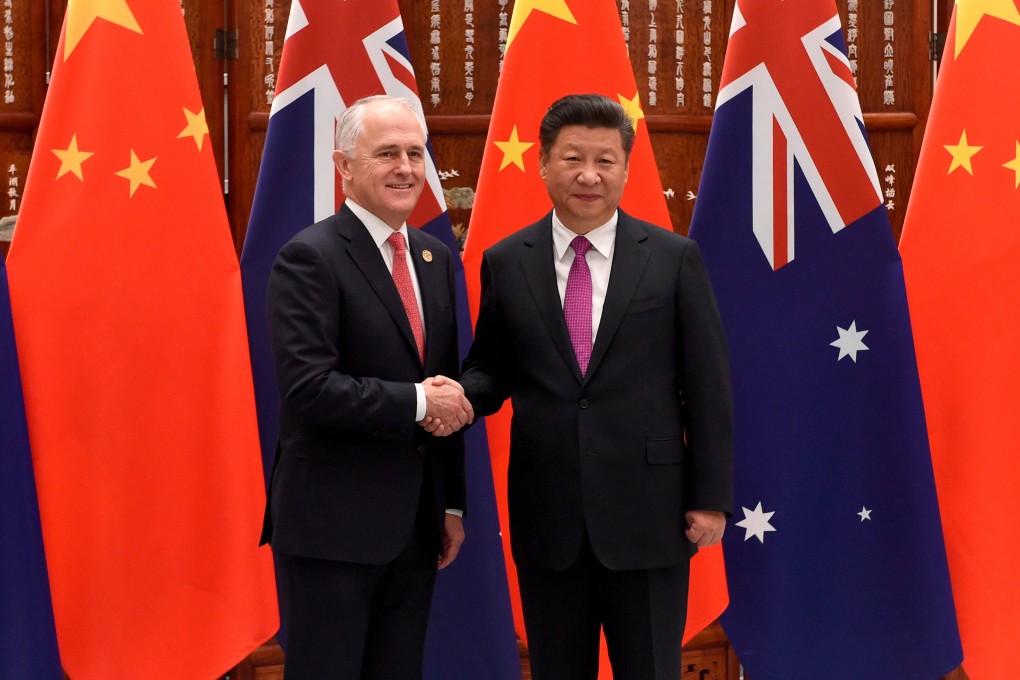Advertisement
China should drop ‘Wolf Warrior’ diplomacy to set itself apart from Trump’s America, former Australia PM says
- Malcolm Turnbull, who led Australia from 2015-2018, said Beijing’s bellicose foreign policy was counterproductive and risked alienating potential partners
- Canberra wants to maintain good ties with both China and the US, he said, as well as expand relations with India, Indonesia and others in the region
Reading Time:4 minutes
Why you can trust SCMP
95

China should draw a contrast with US President Donald Trump by dropping its aggressive rhetoric and “Wolf Warrior” diplomacy to win friends and grow its influence, former Australian prime minister Malcolm Turnbull has said.
In an interview with This Week In Asia, Turnbull, who led Australia between 2015 and 2018, said Beijing’s bellicose foreign policy had been counterproductive, and “moderate language” and consistency would be more effective amid the uncertainty and anxiety caused by the Trump presidency.
“If your objective is to win friends, build global influence, and do that around the world, then the less scratchy you are, the less threatening you are, the less you throw your weight around, the better,” Turnbull said. “And of course the more Donald Trump is seen to be doing all of those things, the less you do it – you being China in this case – the more of a contrast you make.”
Advertisement
Turnbull, who is promoting his political memoir A Bigger Picture, made his remarks amid rising tensions between Australia and China linked to Canberra’s push for an independent international inquiry into the origins and spread of the coronavirus pandemic.
China’s Ministry of Culture and Tourism on Saturday issued an advisory against travel to Australia in response to a “significant increase” in racist attacks on Chinese and Asian people. Trade and Tourism Minister Simon Birmingham hit back that the advisory had “no basis in fact”, while a number of MPs accused Beijing of spreading divisive propaganda.
Advertisement
Advertisement
Select Voice
Choose your listening speed
Get through articles 2x faster
1.25x
250 WPM
Slow
Average
Fast
1.25x